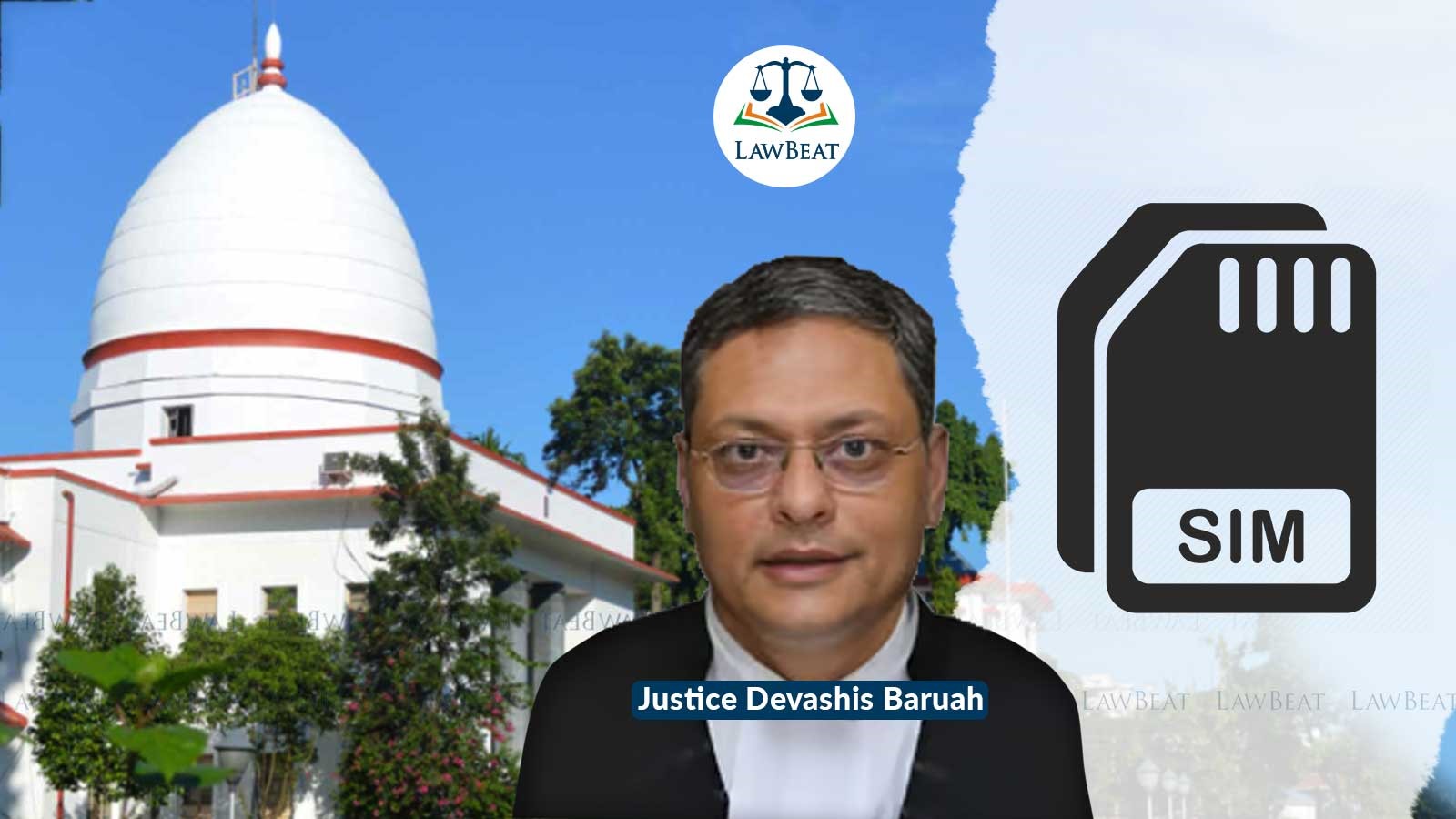“SIM swapping has become a menace resulting in various bank frauds”: Gauhati HC

Court criticised Airtel for failing to adhere to proper verification procedures during the issuance of a duplicate SIM card
In a recent hearing, the Gauhati High Court has brought to light the increasing menace of SIM swap scams, which have been leading to significant bank frauds across the region.
Justice Devashis Baruah, presiding over the case, criticised Airtel, one of the respondents in the case, for the procedural lapses and questioned how the company's employee could have issued the duplicate SIM card without properly matching the application details with existing records.
The court also directed the Central Government to inform the court whether there had been a violation of the instructions issued by the Department of Telecommunications (DoT) for the issuance of duplicate SIM cards, leading to a banking fraud concerning an Airtel customer.
The case originated with the petitioner, Paresh Chandra Deka, a pensioner, filing a writ petition seeking recovery of an amount of Rs. 895,040, which was fraudulently withdrawn from his State Bank of India (SBI) account in the Rangiya Branch. The petitioner's bank account experienced significant unauthorised activity between October 2nd and 4th, 2020. Initially, the account held Rs. 9,13,506.54, but following the transactions, the balance plummeted to a mere Rs. 69.61. The police, after investigation, arrested five people linked to this fraud.
According to the affidavit from the State Bank of India (SBI), during this period, there were nine internet banking transactions totalling Rs. 7,70,024 and three Unified Payments Interface (UPI) transactions of Rs. 5,000, Rs. 50,000, and another Rs. 50,000 respectively.
The affidavit details that the nine internet banking transactions were authenticated using a One-Time Password (OTP) sent to the petitioner's registered mobile number. Moreover, the transactions were merchant-based, indicating the funds were transferred to "Quick Silver Solutions," identified as a third-party merchant. In contrast, the UPI transactions did not require an OTP but were authenticated using a secret UPI PIN, which the petitioner allegedly compromised, allowing the fraudsters unauthorised access to conduct these transactions.
It was revealed that the petitioner’s “account prior to this incident had never been used for internet banking. Further it was categorically stated that the petitioner never applied for internet banking.”
The mobile number linked to his banking activities was registered under his daughter's name, Tulika Deka. An impersonation and SIM swap scam was identified involving this mobile number.
During the period from October 2nd to 4th, 2020, the SIM card linked to the bank account in question was inoperative. Consequently, the petitioner's daughter, Ms. Tulika Deka, filed a complaint with Airtel on October 4th, 2020, highlighting the non-functionality of her SIM card.
The Court observed that the affidavit's enclosures contained several critical documents: the Airtel Prepaid Enrollment Form completed by Ms. Tulika Deka and her verification identity document. In addition, there was an application dated October 1st, 2020, filed by an impersonator who falsely claimed to be Ms. Deka, seeking a SIM swap. This deceptive application was supported by an electoral voter’s identity card, which was purported to belong to Ms. Deka but in reality, represented the impersonator.
The court highlighted discrepancies in the addresses and birthdates in the documents submitted for the SIM swap compared to the actual details of Tulika Deka.
The court examined the 2016 circular from the Department of Telecommunications regarding SIM card issuance, emphasising two key requirements:
- The Point of Sale (PoS) personnel must verify the subscriber's Proof of Identity (PoI) against the original, record a declaration with their details, and ensure all information aligns before issuing a new SIM card.
- Before activating the new SIM card, the licensee's employee (here, Airtel) must confirm that the PoI details match the licensee's records and record a declaration confirming this verification.
The court duly noted that these requirements were not fulfilled by Airtel.
Court concluded that the Union of India, represented by the Secretary to the Government of India, Department of Telecommunications, Ministry of Communications, should be included as a party respondent in the case. Consequently, the Union of India is added as respondent in the ongoing writ petition, ensuring their involvement in the resolution of the issues at hand.
Court has listed the matter for further consideration on April 2, 2024, and expects an affidavit from the government regarding the alleged violations in SIM swapping procedures.
Case Title: PARESH CHANDRA DEKA v. STATE OF ASSAM AND OTHERS
